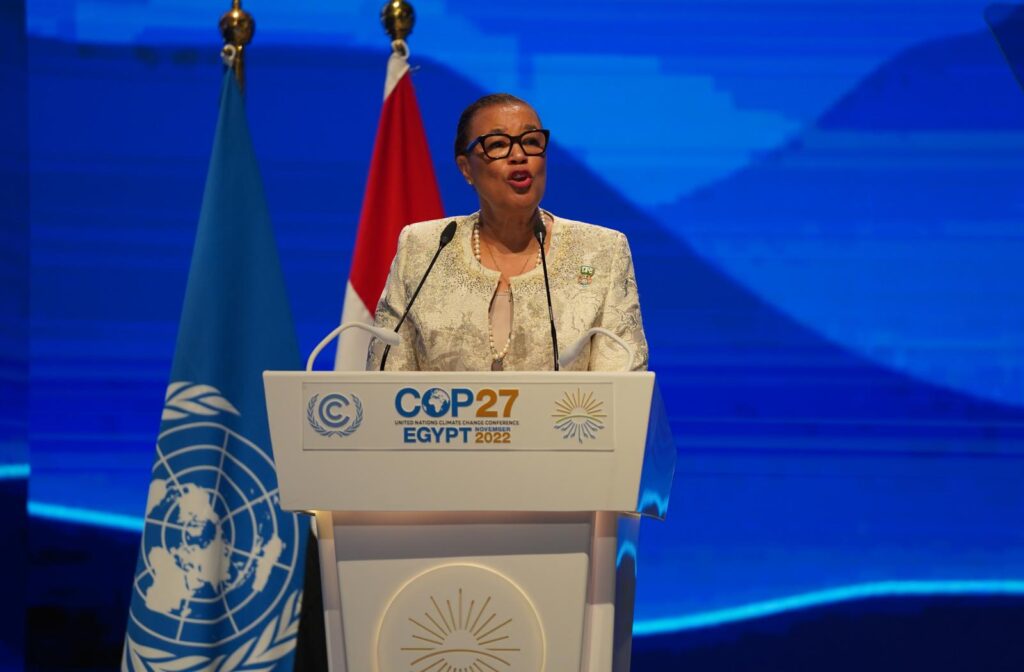United Kingdom (Commonwealth Union)_ The Commonwealth Secretariat, PATH, and the Reaching the Last Mile program have started drumming up support for this year’s COP28 climate summit, urging action to mitigate the adverse health effects of climate change. The Commonwealth Secretary-General, the Rt Hon Patricia Scotland, KC, attended a conference on ‘Enhancing Action to Protect Planetary and People’s Health’ and remarked that climate change is humanity’s biggest health concern. The conference was co-hosted by the Commonwealth Secretariat, the public health nonprofit PATH, and Reaching the Last Mile, which is a program of the President of the United Arab Emirates (UAE).
According to the Secretary-General, malnutrition, malaria, diarrhea, and heat stress due to climate change are estimated to cause an additional 250,000 fatalities a year between 2030 and 2050. Within seven years, the direct impact of climate change on health is anticipated to cost $2 to $4 billion yearly. She added, “I am firing the Commonwealth’s starting gun for COP28 and committing the Commonwealth to a year of diligent and dedicated action across our family of nations, and with all of our partners, to ensure the outcomes the world needs.”

The next United Nations Climate Change Conference (COP28) will be held in the UAE from 30 November to 12 December. The UAE is the first nation in the Middle East and North Africa (MENA) area to commit to net-zero emissions by 2050. According to Khalid AlQasimi, UAE Deputy Ambassador to the UK, “At the heart of this issue is equity. Climate change has the largest impact on the countries least responsible for it. In fact, countries and communities with weak health infrastructure, particularly those in the Global South, will be the least able to cope. These are the same communities that are most vulnerable to the devastating effects of many infectious diseases.”
Mr. AlQasimi stated that charitable contributions made through Reaching the Last Mile are used to handle the climate-health nexus in several nations. For instance, RLM has collaborated with Malaria No More and a worldwide coalition of health partners on the Forecasting Healthy Futures initiative, which uses big data and artificial intelligence to enhance forecast and planning tools for disease control programs in endemic nations.
Nikolaj Gilbert, President and CEO of PATH, reiterated the emphasis on equity by providing personal encounters of the adverse health implications of climate change. To note, last year, altering weather patterns in the Indian state of Uttar Pradesh prolonged the malaria season by two months, deeply impacting the most vulnerable communities. Additionally, excessive rainfall in Kinshasa, DRC, has increased the spreading of water-borne illnesses like cholera. Women and children are particularly vulnerable to these challenges. He stated, “We must continue to link climate change and health equity much more in the future. My [hope is that] when the next COP is going to happen, that climate change and health is going to be discussed and actioned together”.

The conference featured major specialists in the subject, including Professor Andy Haines of the London School of Hygiene and Tropical Medicine (LSHTM), who also addressed the event. He highlighted scientific facts on the topic, including figures on heat-related mortality, diminishing crop yields, and increasing mental health issues in youths. In addition, he discussed the positive effects of the Paris Agreement on Climate Change on public health, including lower air pollution, healthier nutrition, and more physical activity.
Dr. Iris Blom, a colleague from LSHTM, presented her study on the effects of health systems on climate, emphasizing that the health sector is responsible for 4 to 5 percent of global carbon emissions. Further, the conference also strengthened the cooperation between the Commonwealth Secretariat and PATH, which was standardized in March 2022, to address global public health concerns. PATH is a worldwide team of innovators working to promote health equity in over 70 countries, including a large number of Commonwealth member nations.
















